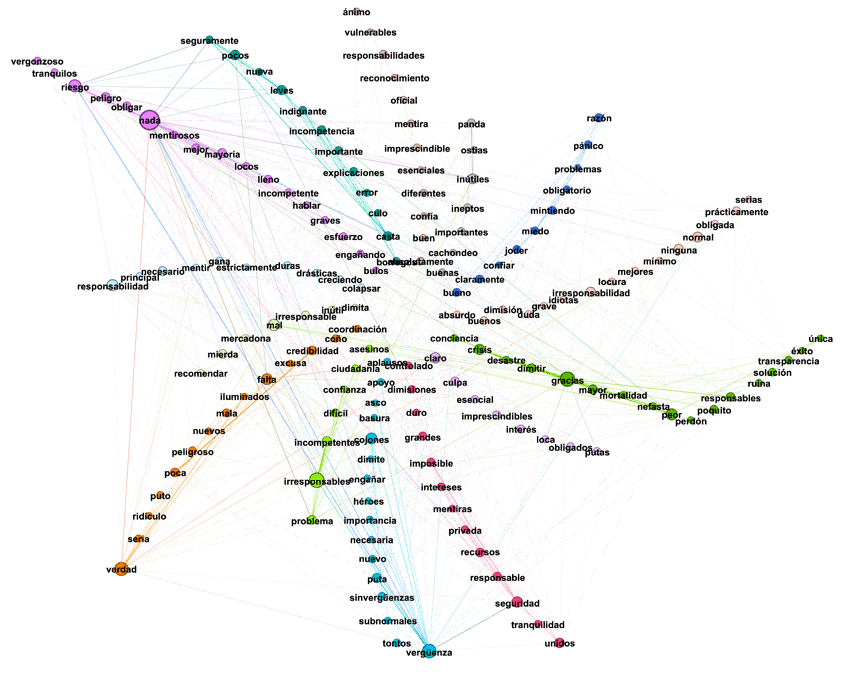Study of Twitter language reveals antipathy to Spanish governmental decisions

Aggressive language on Twitter in Spain has grown during the lockdown, according to a study conducted by researchers from Valencia’s Polytechnic University (UPV), based on over 5,000 tweeted reactions to government announcements on the coronavirus.
The study also found that Spaniards want less hierarchical distance, more flexible decision making, and more debate with the people.
“With this study, among other objectives, we wanted to learn the most common attitude markers used on Twitter following government announcements and, from them, show whether there is acceptance of power in Spain, as well as respect for its decisions,” says María Luisa Carrió, director of the Department of Applied Linguistics of the UPV and study coordinator.
The study analyzed tweets in response to announcements from the ministries of Health, focusing on March 12 to 16—the days prior to the declaration of the state of emergency and the first few days of total confinement.
“Our interest emerged from the news of the first days, which spoke of around 1,700 arrests and over 200,000 proposed sanctions in Spain. This made us question whether there was respect for the government’s decisions at critical moments in Spain,” adds Alberto Conejero, director of the Department of Applied Mathematics and researcher for the IUMPA institute of the UPV.
The study presents a detailed sociolinguistic analysis of the 5,254 tweets with over 110,000 words. From these, the study identified the attitude markers and the existence or absence of respect towards power in critical moments such as a national state of alarm, the obligation of confinement, and the curtailing of professional activity in Spain. “There are three types of markers: of respect, which show a positive attitude towards the government notifications related to COVID-19; of contempt, a negative reaction to the announcements; and emotional, with words that denote a polarized feeling or emotion after the notifications,” explains Carrió.
Conejero explains that the respect markers are used to thank, support, and question the government, understanding that it is a critical situation, but using neutral words. On the other hand, the tone of the contempt attitude markers has a very strong negative polarity due to the COVID-19 crisis.
In the case of negative markers, words that stand out include ‘risk’, ‘none’, ‘irresponsible’, ‘shame’, ‘lie’ and ‘resign’; all terms with a negative and critical polarity towards the government, which convey aggressiveness. “And as the alarm progressed, the number of aggressive markers increased,” adds Conejero.
For the coordinator of the study, it provides a sociolinguistic vision of the attitudinal markers on Twitter. “From them, we have been able to observe that the reaction of Spanish people to the decisions made by the government is aggressive, there is an intense attitude of contempt, and distance to power is not accepted,” concludes Carrió.





